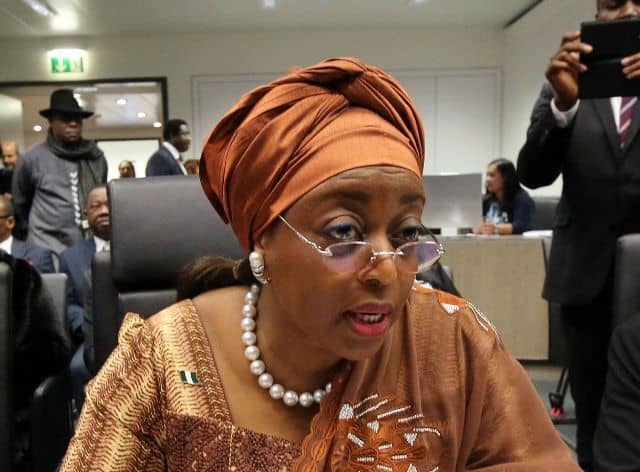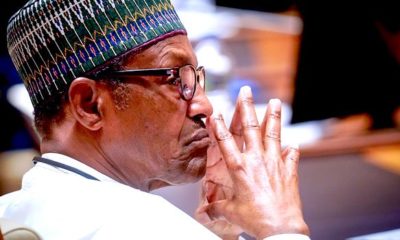Nigeria News
$2.5bn Fraud: Tinubu Govt Writes UK, Requests Diezani’s Extradition

The Bola Tinubu Government has submitted a warrant of arrest and request for the urgent extradition of the former Minister of Petroleum, Diezani Allison-Madueke.
Naija News gathered that the Attorney-General of the Federation and Minister of Justice, Lateef Fagbemi (SAN), submitted the request to the Crown Prosecution Services of the United Kingdom.
It was learned that President Bola Tinubu ordered the submission of the request following a written official request by the Economic and Financial Crimes Commission (EFCC) to the office of the AGF earlier in October.
Speaking with The Punch, a top Federal Government source said in making the extradition request, the office of the AGF cited Section 2 (2) of Nigeria’s Extradition Act, CAP E25, Laws of the Federation of Nigeria, 2004, and the London Scheme of Extradition within the Commonwealth otherwise known as “The Scheme,” a multilateral treaty which governs extradition between the United Kingdom and Nigeria.
“The EFCC established a prima facie case against Allison-Madueke in a letter to the office of the AGF, after which a magistrate was ordered to issue a warrant of arrest. The certified true copy of the warrant of arrest was then attached to the extradition request written to the UK government by the AGF on the orders of the President,” he said.
He further revealed that the delay in Allison-Madueke’s extradition to Nigeria from the UK was due to an ongoing internal review of the request by the UK authorities.
Another top source confirmed that the AGF has submitted a warrant of arrest and written to the UK government for Diezani’s extradition to Nigeria, but extradition processes are usually cumbersome as it is subject to the approval of the recipient country.
“It is true that the AGF has submitted a warrant of arrest and written to the UK government for Diezani’s extradition to Nigeria, but extradition processes are usually cumbersome as it is subject to the approval of the recipient country. Nigeria has made its request, but the UK has to subject it to their laws, and other international institutional bottlenecks that are in place in the UK.
“So, it is the UK that’ll determine how fast Diezani will be returned to Nigeria,” he told the newspaper.
According to another source, an informal interagency collaboration between the EFCC and the UK’s NCA was part of what led to the ongoing trial of Alison-Madueke at the Westminster Magistrates’ Court in London.
Recall that the EFCC had on October 2 revealed that it had commenced extraditing Alison-Madueke from the UK back to Nigeria over 13-count charges bordering on money laundering levelled against her by the anti-graft agency.
The commission further revealed that the money laundering charges for which Alison-Madueke is answerable to the EFCC, covered jurisdictions in Dubai, the United Arab Emirates, the United Kingdom, the United States of America, and Nigeria.
In August, the UK’s National Crime Agency said it suspected Alison-Madueke had accepted bribes in return for awarding multi-million-pound oil and gas contracts an charged her to court.
The former minister, earlier in the month, appeared before the Westminster Magistrates’ Court in London over an alleged £100,000 bribe.
The district judge, Michael Snow, granted Alison-Madueke a £70,000 bail. Snow further imposed other terms on Alison-Madueke, including an 11 pm to 6 am curfew, an electronic tag to be worn by her at all times, and a £70,000 surety to be paid before she could leave the court building.
Her next court appearance will be at Southwark Crown Court, which deals with serious criminal cases, on October 30.












